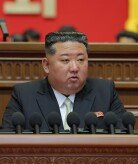‘Slowflation,’ the pressing issue facing Korean economy
‘Slowflation,’ the pressing issue facing Korean economy
Posted December. 04, 2021 07:27,
Updated December. 04, 2021 07:27
South Korea’s consumer prices in November surged by 3.7 percent, the highest rate in nine years and 11 months while the country’s gross national income (GNI) posted negative growth for the first time in five quarters. People’s pockets are emptying but prices are rising, weakening consumer spending and slowing down economic recovery. There are rising concerns for “slowflation,” which is characterized by slow economic growth and high inflation. Ordinary people are struggling to make a living, burdened by rising prices and high interest rates.
Consumer price index (CPI) for living necessaries rose 5.2 percent last month, far outpacing the growth in consumer prices. Consumer prices, ranging from vegetables and meat to public services and oil prices have surged. The value of money has fallen but households have no money to spend. The GNI, which reflects the actual financial condition of ordinary people, fell 0.7 percent in the third quarter. This means the government’s support for the people, such as the disaster relief funds, has not helped the financial condition of households.
People are earning less income but have many things to spend money on, including interest rate and house rent. There are not enough decent jobs, except for jobs in the public sector. Since they are worried about the future, they do not spend money they have. The propensity to consume declined to its lowest in the third quarter. The country is seeing a vicious cycle, where consumers reduce spending out of fear and this in turn leads to economic slowdown.
The Organization for Economic Cooperation and Development (OECD) lowered its earlier forecast of global economic growth in a report issued on Wednesday (local time). The Bank of Korea (BOK) said the country might not be able to achieve its annual economic growth target of 4 percent this year. When the economy slows down, there are less investment and number of jobs on the market, which inevitably make the lives of ordinary people more difficult.
Federal Reserve Chairman Jerome Powell said inflation has been “more persistent and higher” than expected, hinting that an interest rate hike could happen sooner than expected in order to quell inflation. The South Korean central bank is also reviewing an interest rate hike in January next year. A hike in interest rate will lead to an increase in loan interest rate, which would take a blow to ordinary people. It has become more difficult for ordinary people to take out loans due to lending regulations. The Korea Research Institute for Financial Inclusion predicts that the so-called, “loan refugees” seeking to take out loans from private lenders will exceed 100,000 this year.
Finance Minister Hong Nam-ki said on Thursday that the country’s inflation rate is low compared to major countries and inflation growth is likely to slow in December. However, there are many variables at home and abroad to paint a rosy picture and the disadvantaged find it difficult to survive day by day. The National Assembly passed a record 607 trillion won national budget for next year, but it is difficult to support the livelihoods of ordinary people by just injecting money. Restructuring and support measures for the underprivileged should be reflected while executing the budget, and the private sector should have the support it needs to attract investment and add jobs.






![한그릇 1만5000원 봄동비빔밥 ‘품절’…제2의 두쫀쿠?[요즘소비]](https://dimg.donga.com/c/138/175/90/1/wps/NEWS/IMAGE/2026/02/27/133437451.3.jpg)
